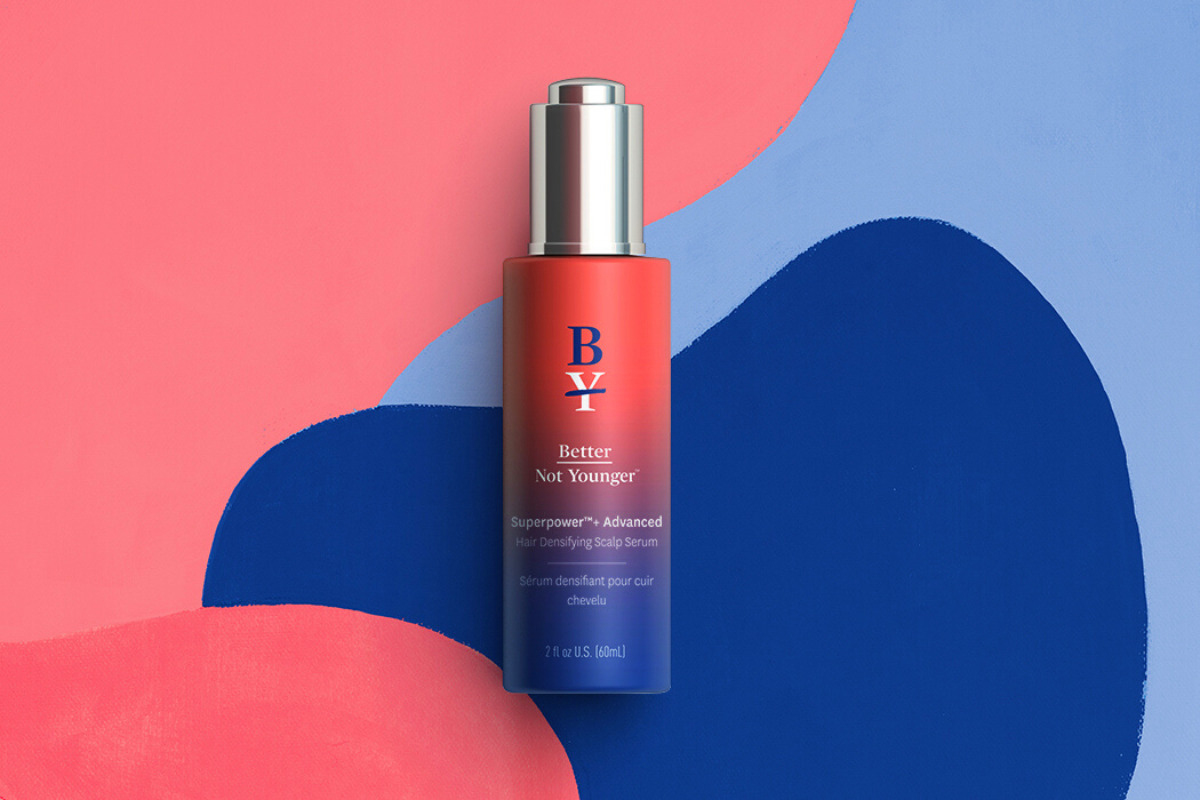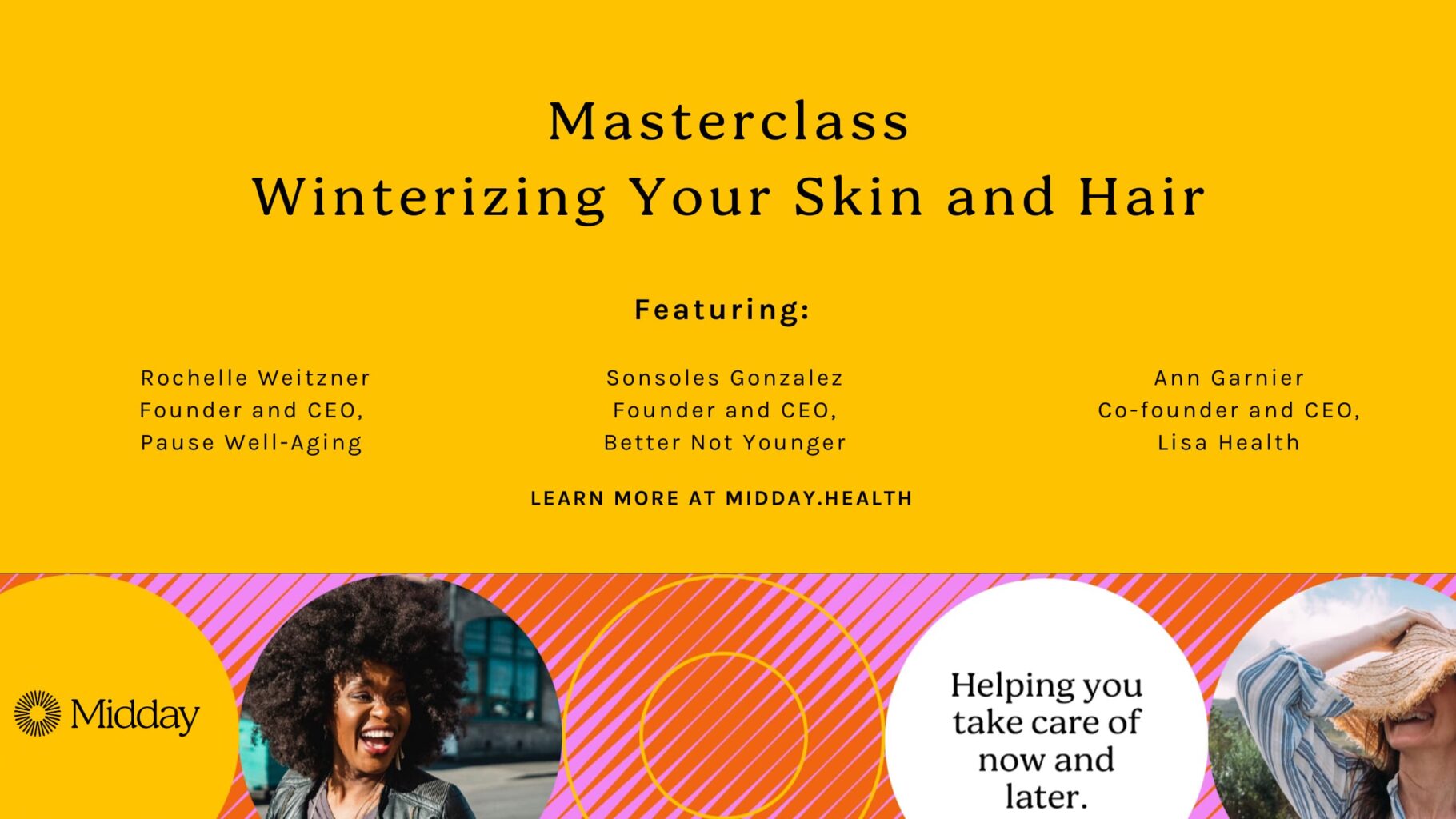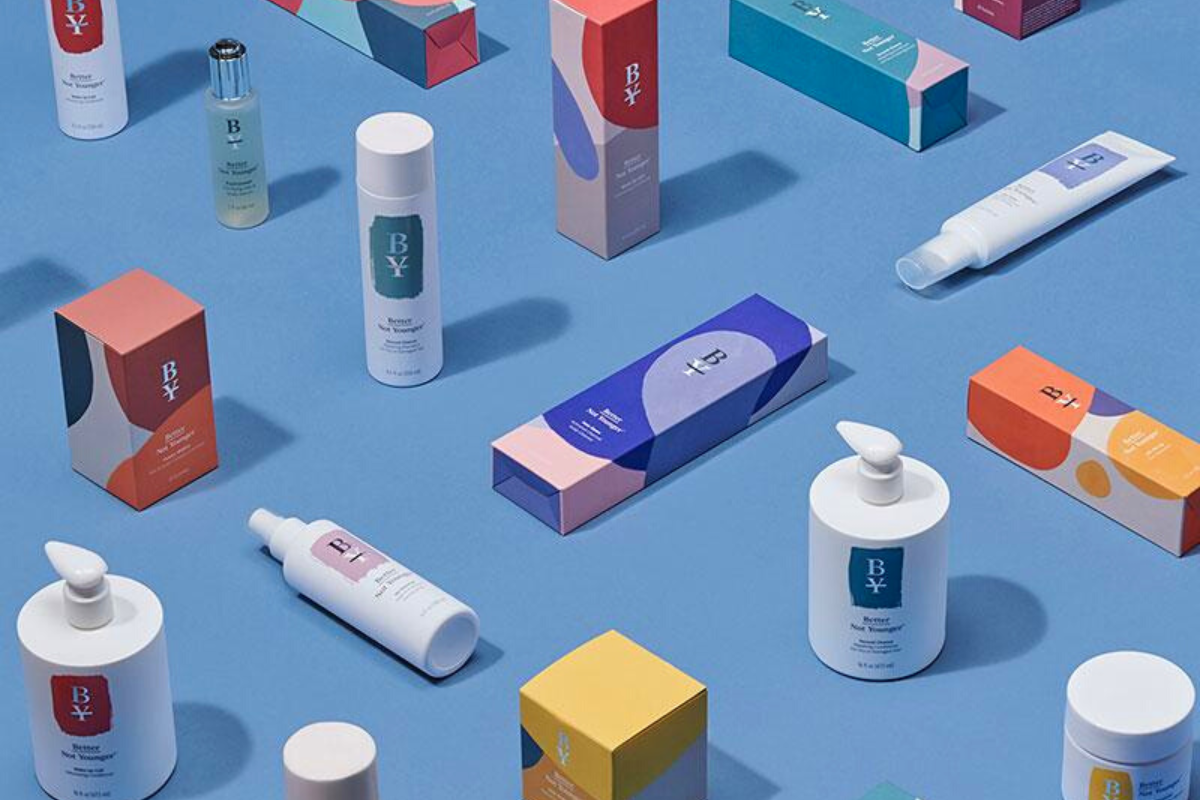Thin, Dry, Frizzy Menopause Hair, Oh My!
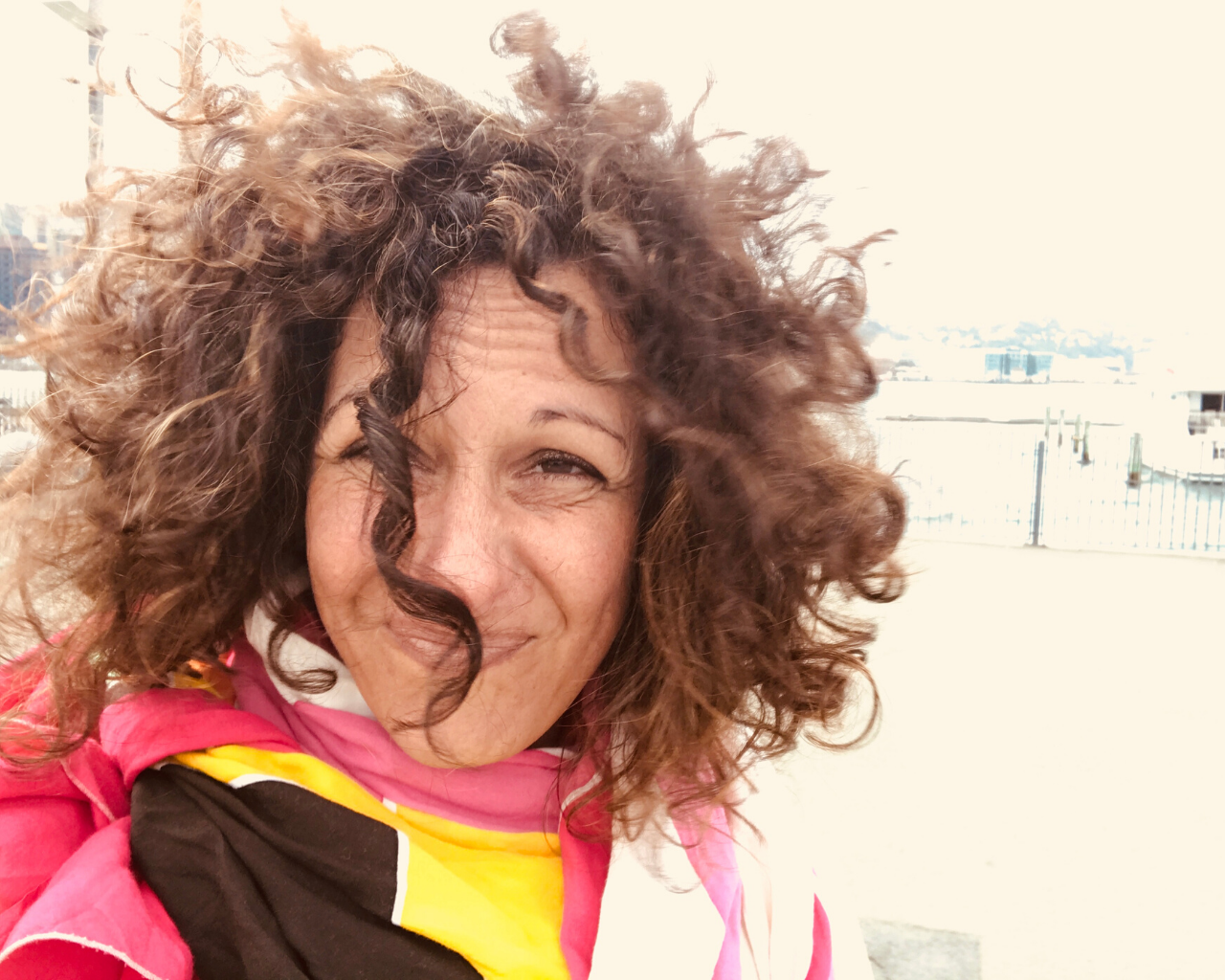
Have you ever woken up one day and realized that your hair is noticeably thinner, drier, frizzier, or a combination? During menopause, estrogen and progesterone levels drop and wreak havoc with our hair. Thick, smooth, shiny locks are suddenly thin, dry, and frizzy. Not to mention going gray and looking a little dull. You might even find that while you’re losing hair on your head, it starts growing someplace less desirable, like your chin. Talk about adding insult to injury!
It’s typical for people to lose 50-100 hairs a day in a natural process of growth and hair loss. About one-third of women experience hair loss (alopecia) at one point in their life. That number climbs to two-thirds in postmenopausal women.
Menopause is one reason for changes in your hair. The impact of changing hair patterns is most noticeable in your mid-40’s. In addition to fluctuating hormones, some women may be genetically predisposed to thinning hair. Other causes of hair loss can include certain medications, stress, and hormone imbalances like thyroid, for example.
Not only does our hair get thinner and finer, but it will also become more dry and brittle. The oil glands produce less oil, which makes hair drier and less elastic. All the processing we do to our hair – blow-drying, straightening, and coloring – makes the problem worse.
Signs and Symptoms of Hair Loss and Thinning Hair
A few telltale clues will indicate that your hair is thinning during menopause. Things to look for include:
- More hair on your hairbrush, pillow, in the shower or sink drains, and on the floor.
- Noticeable patches of thinning or missing hair.
- A smaller ponytail.
- Seeing hair break off.
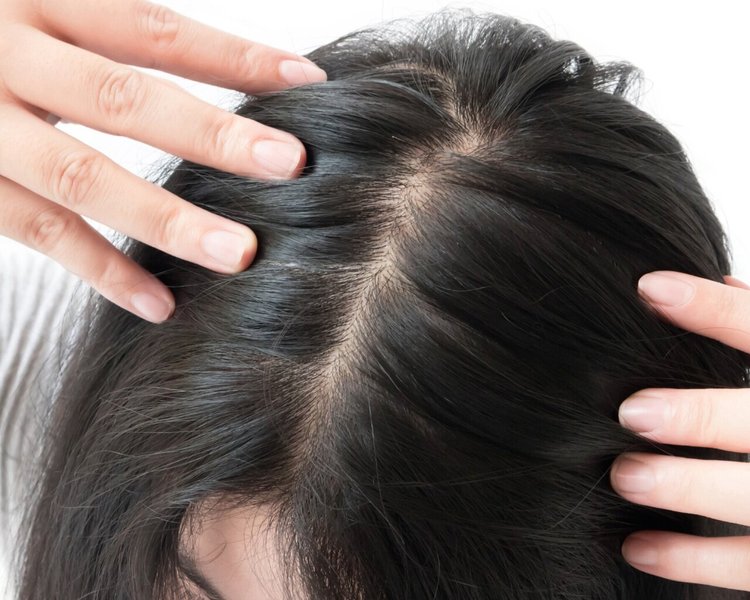
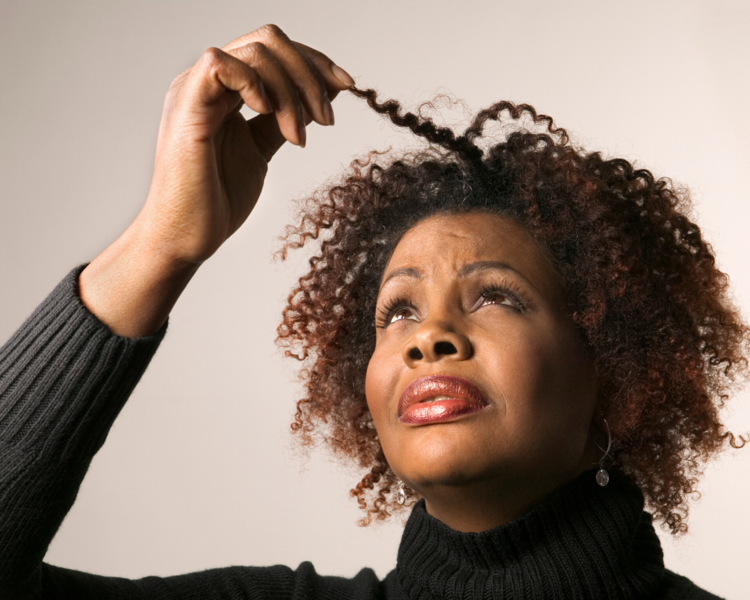
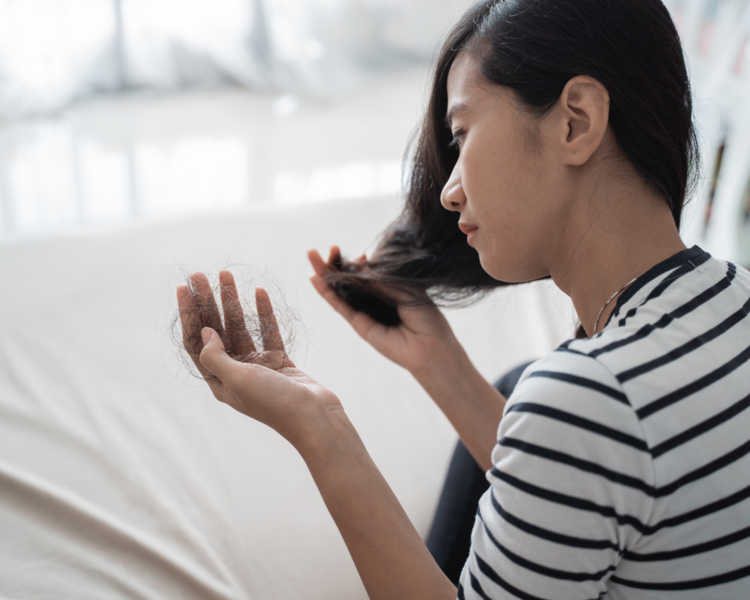
Solutions for Aging Hair
For many women, problems with aging hair, especially hair loss and thinning hair, cause stress, anxiety, and even social withdrawal. Confidence and self-esteem take a hit too. While we can point the finger at hormones and genetics, there are some controllable factors like lifestyle and environment.
Here are a few steps you can take to improve the health and look of your hair.
- Make sure you are eating a healthy plant-based diet with the nutrients that help promote strong, healthy hair growth. These include protein, Omega-3 fatty acids, complex carbohydrates, biotin, iron, zinc, Vitamin A, Vitamin C, Vitamin D, Vitamin E, and flavonoids. Getting nutrients from food is best, but talk to your doctor about supplementation if you think you have a vitamin or mineral deficiency.
- Stay well hydrated with water throughout the day.
- Reduce stress levels through self-care practices like yoga, meditation, and journaling.
- Avoid pulling your hair back into a tight ponytail, up-do, or braid, or in any way pulling or twisting on the hair. Doing so can pull on the roots, damaging the follicle, and the loss can be permanent.
- Wash your hair regularly but not too regularly. While getting rid of dead skin, excess oil, and product buildup is essential to promote hair growth, don’t over-dry your hair and scalp by washing it too much.
- Avoid hair care products that contain sulfates.
- Seek out quality products that specifically target aging hair.
- Wear a hat outside to protect the hair and scalp from harsh sunlight.
- Think twice about coloring or bleaching your hair. It may be time to go gray.
- Keep styling tools to a minimum. Blow drying and straightening your hair with high heat settings is quite damaging.
- Talk to your hairdresser about switching to a more flattering hairstyle. Your hairdresser has undoubtedly noticed your hair is thinning but may not want to embarrass you by bringing it up.
- For more extreme hair loss, consult your doctor on prescription remedies like Minoxidil, antiandrogen drugs like spironolactone, and red light therapy.
It may take a bit of time for these strategies to work. Hair regrowth takes time. Don’t give up if you don’t see results right away.
For more guidance on managing your menopause symptoms and find curated products from new brands tackling thinning hair, gray hair, and more, download Midday from the App Store, the only menopause app you’ll ever need.
Sign up for more unique women’s health content
By submitting this form, you agree to the Lisa Health Privacy Policy and Terms of Use
